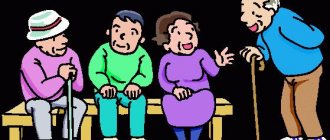The founder and director of Youth Consulting, who has worked with Coca-Cola, Pepsico and Microsoft, and the editor-in-chief of the personal growth blog Zero To Skill, Zdravko Cvijetic, wrote an article where he highlighted the key skills that each of us should acquire the sooner, the better. We translated the material and selected key points, maintaining the unusual author's style.
Super Mario. A little mustachioed plumber, without whom my childhood would not have been so happy. I was ready to spend hours helping this kind fellow save the princess from a group of bad guys. If you also played Mario, then, of course, you couldn’t help but notice how difficult it was to move from level to level without a sufficient number of mushrooms - those that helped you grow bigger and endowed the hero with useful skills like throwing fireballs. So, our life is like a game. Playing Mario the Plumber. In life you are Mario. And you need to find your “mushrooms” that will help you grow, improve, move from level to level, develop as a person and as a professional. When I ask my readers to name the reason that prevents them from learning new skills, I get many different answers. One of them especially shows well what perhaps each of us goes through: “There is too much to study around. There is too much choice... And time is limited.” This thought prompted me to create this article. After talking to people and reflecting on my own experiences, I did some research and this is what I came up with. 15 valuable skills that will help you step into a new stage of personal development. You need to start developing these skills as early as possible.
Finding your own philosophy
The internal compass tells us whether everything is going according to plan or whether something has gone wrong. But it’s not enough to feel it - you need to soberly assess the situation in accordance with your own value system. To define this value system, ask yourself: “What do I value in _______ (work, relationships, friendships, life, etc.)?” The listed set will be your system of value coordinates. Then ask yourself, “What good and bad do I see in this world?” Once you focus on the positive, “Oh crap, it’s Monday again...” will miraculously turn into “Oh yeah, it’s Monday!” Shall we begin? Do you feel the difference?
Skills needed in everyday life
I won’t lie: you can do without any of them. But living without these skills, which everyone should still learn, is more difficult, and in extreme situations, some will even save lives.
Providing first aid
No one is safe from trouble. So it is better to know how to help yourself, your family or a stranger in case of injury. Practice shows that many do not even know how to properly stop nosebleeds or what to drink for a high fever.
Self-defense
Nobody knows what kind of people you will meet in life. Perhaps not everyone will have good intentions. Therefore, basic self-defense techniques, rules for using a gas spray, a stun gun or an air pistol will help you feel more confident.
Behavior in an emergency situation
It’s a pity that so little attention is paid to life safety lessons at school. How to suppress panic, how to behave in case of a fire, what to do if you are drowning or have fallen through the ice, how to get out of a sinking car, how to survive in the forest - you need to seal this in your memory. Then you’ll see there will be fewer tragedies with drowning fishermen and people suffocating in fires.
Parenting
Looking at some parents, it seems reasonable to argue that only people who have undergone special training should be allowed to give birth to children. After all, clothing, feeding and putting to sleep is not enough. It is necessary to understand how to communicate with a child and how to raise an integral, self-sufficient, mentally healthy personality.
Many parenting methods that worked for our parents and grandmothers are now irrelevant. Society and the position of the individual in it have changed, which means that different upbringing is needed. Read at least the book by Lyudmila Petranovskaya “Secret Support. Attachment in a child’s life.”
5. Driving
There is no point in talking about how convenient it is to have a car and how much time is saved if you have your own wheels. But what it is advisable to pay attention to is mastering extreme driving skills. And not to feel like a cool racer and ride without looking around. But only in order to be able to get out of difficult emergency situations, to feel confident on any road and in bad weather.
Foreign languages
Learning and using foreign languages is a great way to train your brain. In addition, this skill will be useful in work and travel. New facets in cinema and literature will open up before you, because watching and reading works in the original is much more interesting.
The most universal language is English, but more and more people want to learn Chinese. After all, it is the most common in the world today.
7. Cooking
The ability to cook deliciously is considered the prerogative of the female half of humanity, although men are often even better at this craft. It’s not for nothing that most famous chefs are men. But culinary knowledge will certainly be useful to everyone in life, and gender does not play a role here.
Housekeeping
If you do not have a staff of servants, then the subtleties of housekeeping will certainly be needed. Proper washing of clothes, secrets of maintaining cleanliness, floriculture - this is only a small part of what you need to know in order for comfort and order to reign in your home.
Interior Design
For those who want to reach a new level in arranging their home. Interior design is not only about beauty, but also about convenience and functionality.
Think over the layout and color palette, plan the arrangement of furniture, select different lighting scenarios - it’s quite possible to learn this by spending a certain amount of hours and effort.
Style Basics
No matter how sad it is, we are greeted by our clothes. Therefore, you need to know how to dress appropriately for different situations and events, what outfits are suitable for your body type, how to combine colors in clothes and select accessories. You don't have to become a stylist to understand the basics, which will be enough for everyday life. By the way, this also applies to men.
Cosmetology and makeup
There is no need to understand the intricacies of makeup and spend half your salary on cosmetics if you are not interested. Find some good products for yourself and get familiar with basic makeup techniques.
It is more important to learn how to take care of your skin. At least cleanse, moisturize and protect from the sun. This will get rid of acne, age spots and other problems, delay the appearance of wrinkles and even maintain health.
12. Massage
This skill will significantly elevate you in the eyes of your family. They will line up to get their portion of relaxation and relaxation after a hard day.
You can master massage techniques yourself using video lessons and books, but it is better, of course, to take courses. A professional will tell you and show you the right techniques and techniques.
Hairdressing art
Even a novice hairdresser can trim the ends and bangs, do the styling and haircut, and cut the hair of her son and husband. This will give you the opportunity to get rid of the unnecessary hassle of going to the hairdresser. And it will save the family budget.
Photographing
Taking beautiful photos at an amateur level is not that difficult. You don't need a professional camera or super expensive equipment for this. The skill of the photographer is crucial to successful photographs. Knowing the basic rules and principles will significantly improve the quality of your photographs.
15. Chess
After the release of the TV series “The Queen’s Move,” this intellectual sport is experiencing a new round of popularity. And one can only rejoice at this, because chess perfectly develops both hemispheres of the brain, logic, abstract thinking, memory, and helps train attentiveness and the ability to maintain concentration.
There are even studies that older people who play chess are at lower risk of developing Alzheimer's disease.
Setting goals
In 1979, at a lecture in the Harvard MBA program, students were asked the question: “Do you have clearly defined goals for the future and plans to achieve them?” Only 3% of students responded that they had written goals and plans. Another 13% admitted that they have goals, but not in written form. The vast majority, 84%, had no clear goals at all. Ten years later, the graduates were brought together again. They were asked how much they earned, and the incredible thing was revealed. The 13% of graduates who had goals earned, on average, twice as much as the 84% who did not have goals. And the 3% whose goals were clearly stated ten years ago earned ten times more than the other 97% combined! Targets work like a camera lens. If you focus correctly, you will get a clear picture. If the focus is not achieved, the image will be blurry.
Definition of skill
First, let's understand the terminology and find out how skills differ from skills. There is also a third participant in this chain – skill.
A skill is an automatic, conscious action aimed at achieving a specific goal. It is developed through constant exercise, practice and effort. It can be improved endlessly.
Skill is the ability to perform some action efficiently, quickly and on time under different conditions. Ability is formed on the basis of skills, i.e. it is, as it were, the next step.
Mastery - having achieved it, a person is able to perform actions or work with minimal expenditure of time and resources. To achieve mastery in any matter, you have to work hard and study.
It is impossible to clearly define the boundary between the stages. Therefore, it is impossible to understand what level you are at now. There is no highest point of mastery in any task, because you can improve endlessly.
More than 100 cool lessons, tests and exercises for brain development
Start developing
What you definitely don’t want to confuse are skills and habits. A habit is an unconscious automatic action that is formed as a result of repeated repetition. At a certain point, it becomes a need and is often consolidated without any effort on the part of the person.
Habits can be not only useful, but also harmful. They have no conscious purpose and are often unproductive. And skills develop and move forward; they are associated with solving a problem. Although one does not exclude the other, it happens that a skill is based on good habits.
Let me give you an example. Drawing is a wonderful skill that is worth learning even if you have no talent. To make the process of learning to draw easier, you can develop some habits:
- put tools in a certain order to tune into the desired mood;
- carry a notebook with a pencil and constantly make sketches;
- Every day add at least a couple of touches to the picture.
Each skill has sub-skills. The same drawing can be divided into many sub-skills: how to hold a pencil and use line weight, different styles, line and technical drawing, sketching, portraits, landscapes, etc. Always start learning from the base and highlight what interests you most.
Classification
Human skills have several classifications, but we will look at the most popular one. According to it, skills are divided into three groups:
- Motor – the ability to perform some kind of movement. For example, the ability to write, dance, sew.
- Intellectual – automated ways of solving a previously encountered mental task. For example, counting in your head, planning things.
- Perceptual - a sensory reflection of the properties and characteristics of previously perceived objects. The object is perceived and correlated with existing information. For example, determining by eye the distance to an object, reading.
Also in the modern professional environment there is a division into hard and soft skills:
- Hard skills are professional skills that can be learned and that can be measured in different ways (exams, tests). Examples: foreign language, driving a car, computer skills.
- Soft skills are universal competencies and personal qualities that are difficult to measure with specific indicators. They depend on character and are developed with experience. For example, the ability to work in a team, eloquence, creativity, perseverance.
It is necessary to develop each group of skills, then your personality will be harmonious and you will be able to achieve success in all areas of life.
Visualization
Setting goals is something you can do consciously. Your brain is great at generating ideas and thinking about them, but it is powerless when it comes to putting them into action because it is constantly distracted by various external events. The subconscious mind works differently: it is able to see the full picture. When the conscious and unconscious go hand in hand, they help you achieve your goals. Visualization works best immediately after waking up and a few minutes before sleep. By imagining the smallest details, sensations and emotions as if you had already achieved your goal, you force yourself to believe that achieving the goal is, in principle, possible. But be careful! This is not the law of attraction, which says that all you have to do is imagine a Ferrari, and the next day a brand new car will be waiting for you outside your window. It doesn't work that way. Visualization is only one side of the coin. Hard work and dedication are the other side of it.
#7. Photograph
This is me taking a portrait of my wife in Nepal
My definition: Learn how to use a camera to take great photos.
Photography, like drawing, is a very broad skill. With the proliferation of smartphones and DSLR cameras, more and more people are becoming interested in photography. Luckily, it's now very easy to learn the basics of photography and start taking beautiful pictures.
Subskills
- Terminology
- Framing
- Rule of thirds
- Composition
- How to read a histogram
- Camera types
- Understanding the basic principles: shutter speed, aperture, light sensitivity
- Portrait photography (includes many sub-skills)
- Landscape photography (includes many sub-skills)
- Product photography (includes many sub-skills)
- Photography of moving objects (includes many sub-skills)
- Macro photography
- Long exposure photography
- Processing Photos in Camera Raw
- Processing photos in Photoshop
- Processing Photos in Lightroom
- and many many others!
My story about photography
Previously, I had no interest in photography at all. I first got a more or less high-quality camera when I bought an iPhone 6. I started shooting and experimenting with processing through different applications. The process captivated me.
When I was planning a trip to Iceland, I decided to improve my skills in order to bring back worthwhile photos from the trip. I spent quite a bit of time researching the issue - and the result was not long in coming: I started shooting quite well.
Then I traveled around the world for a year. On that trip I took about 15 thousand photographs. I was already doing great—people even thought I was a photographer. Therefore, in India, I decided to buy my first DSLR and continued my journey with it. Learned a lot of new things!
Later, I photographed several Sundara events and the opening of a new WeWork branch in Bangalore, India.
I'm currently learning about portrait photography and will be training on these beautiful models: Carla Diaz, Diana Jabba, and Kevin Nguyen.
How to learn to take photographs?
To begin with, I advise you to master the rule of thirds: it will be those same 20% of efforts that will give 80% of the results. The rule of thirds can be mastered in 5 minutes, and your photos will immediately become at least twice as good.
The rule of thirds is one of many framing techniques. By the way, the rest are also worth studying. Amateur photographs are often successful, but due to poor framing they don’t look very good. This can be corrected by cropping the photo during processing.
Another important aspect is exposure. Learn what an ideal exposure looks like and what underexposure/overexposure is. Learn to read a histogram. Learn to use these techniques to create the effect you want.
Framing and exposure help you take beautiful photos, even with inexpensive equipment. Yes, a DSLR camera “helps” with exposure, but a phone can also expose a photo correctly.
For a month, practice taking photographs in a certain style. I started with landscape photography. Now I understand that landscape photography is probably the hardest thing to learn how to take really cool pictures.
When you're ready to buy a camera, choose a lens that matches the style you want to shoot in. With experience, you will realize that in most cases the quality of photographs is determined by the lens, not the “body” of the camera.
I advise you to master no more than one style per month. This focused approach allows you to hone each skill quite well.
Resources
Free
- Article: 25 Common Photography Terms All Beginners Need to Know
- Article: Rule of Thirds
- Article: 10 Top Photography Composition Rules
- Video: How to read a camera histogram
- Article: A Simple Guide to the Different Types of Digital Cameras
- Video: If You're Serious About Taking Better Portraits, Watch This
- Article: 14 portrait photography tips you'll never want to forget
- Article: Lightroom Crash Course: Ultimate Beginner's Guide To Lightroom
Paid
- Book: Scott Kelby's Digital Photography Boxed Set, Parts 1, 2, 3, 4, and 5 (I learned the lion's share of what I know from Scott Kelby's books).
- Book: Mastering Exposure in Digital Photography
Healthy lifestyle
Everyone wants to be healthy. Right? For me, for example, the goal is not just to be healthy, but also to have enough energy. Plus look good.
Example. I played football for 11 years and then gave it up. My weight went from 65 to 86 kilograms in less than 9 months. I became fat. For anyone who once boasted great abs, this is frustrating. So I decided to do two things:
- find a suitable diet that would help me return to a normal weight, and stick to it;
- In addition to nutrition, exercise regularly.
It took me about a couple of years to find a suitable diet and sports activities to my liking. But now I am happy with my body, healthy and energetic during the day.
#8. To play guitar
Photo by Jefferson Santos on Unsplash
My definition: Learn to play a musical instrument.
The most popular instrument that SkillUp your Life participants want to learn to play is the guitar. You can sing so many songs with a guitar! And isn’t it cool to take it and play it at family gatherings or with friends? And there is such a variety of guitars that finding a suitable instrument is not difficult.
Plus, once you learn to play the guitar, you can quickly master most stringed instruments.
Subskills
- Terminology
- Types of Guitars
- Guitar playing styles
- How to read sheet music
- How to hold a guitar correctly
- How to place and move your fingers correctly
- Main types of guitar strumming
- 4 most popular chords
- Play one song
- Play in the same style
- And much more!
My guitar story
Oh my God, it’s even embarrassing to talk about...
I've been meaning to learn guitar for years. To tell the truth, I have owned two guitars in my life. One even still lies somewhere in Colombia. I never had the patience to learn how to play. When I was younger, I tried to learn guitar on my own, but back then there weren't as many learning resources as there are now. You had to either hire a teacher or study diligently yourself, loading chords via a super slow Internet.
When I met my future wife at 17, it seemed to me that the guitar made me cooler. Of course, I couldn’t play, but she didn’t know that - so I was still “cool”










